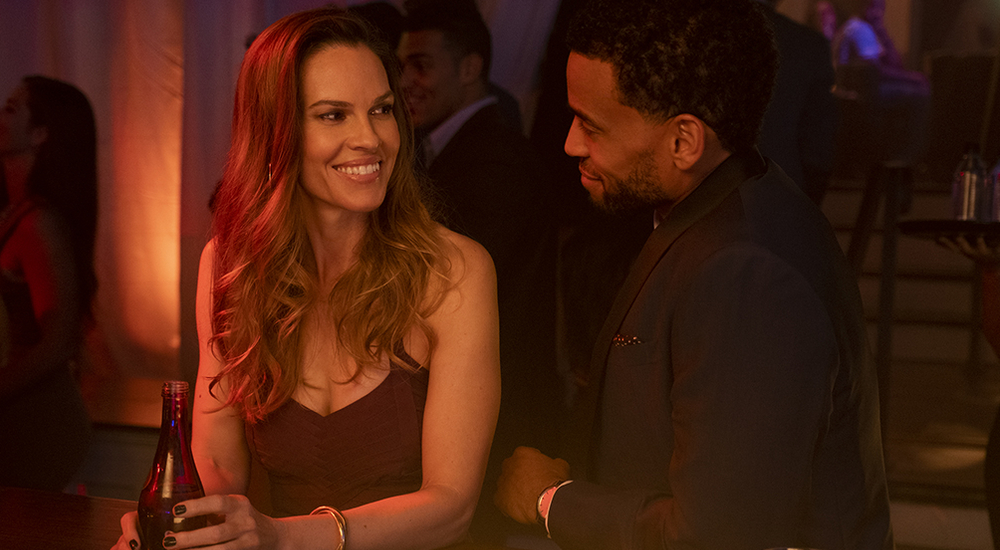"I thought we were playing a game."
Hilary Swank has been nominated for two Oscars: 1999's Boys Don't Cry and 2004's Million Dollar Baby. She won both times. Why she is even reading the script for a film like Fatale is beyond me; however, it's 2020.
Tabbed as a psychological thriller, Deon Taylor's Fatale is actually a rudimentary and highly calculable cat and mouse game where modern era technology and honest perspective could have ended the story some seven minutes in.
Derrick (Michael Ealy), a successful sports agent who bypassed the corporate game to build his own brand, watches as his seemingly perfect life seems to disappear after a wild one-night stand during a trip to Vegas.
Unbeknownst to him, the woman in question (Hilary Swank) is a detective who looks to have a string of issues of her own, most notably anger, alcoholism, and the loss of trust with her family. Painstakingly determined to get what she wants, she entangles Derrick in her latest investigation, stopping at nothing to tie up loose ends and regain the one thing she can't seem to get back: her daughter.
Featuring a life filled with sleek, sexy, luxurious things, Fatale spends a lot of time working to impress you visually as it builds upon the spectacle and allusion of the perfect life. It's an age-old approach that allows the forthcoming demise of Derrick's picture-perfect existence to be more substantial. It's intended to help you connect to our main protagonist and wish for his recovery, two things that never materialize.
2009's Obsessed, 2017's Unforgettable, and 2020's Fatal Affair are popular films that use a similar approach. The comparison is not a compliment.
The crash, meant to paint Derrick as a victim, is hardly effective as the onslaught of hardships that occur are nothing more than self-inflicted wounds. The film's story maintains its comfortable position, refusing to venture off the pre-destined path as it works its way through a set of obstacles towards a destined altercation and eventual conclusion. The film becomes further hampered by painfully unnatural dialogue, a questionable lack of context, and an unacceptable disconnect from those of us watching.
Swank provides the film with an occasional heartbeat; however, she cannot save the entire picture. Her performance sticks out, rising high above the rest as she attempts to work within the harsh structural confines of David Loughery's script. She deserves better than this, and her efforts, though well-intended, fall flat.
Ealy doesn't earn the same acknowledgment. Though a highly regarded actor in his own right, he fails to expand on his one-dimensional character, never venturing outside the proverbial box. We never feel for him or worry about his safety. His delivery is typical, his actions predictable, both of which seal the film's fate early on.
Though there is an audience that will appreciate what Fatale offers, it isn't large. Much like Obsession, which I still hail as a work of comedic genius, it will likely be remembered for all the wrong reasons and hopefully has Swank reevaluate her future projects. We all know she is better than this.

